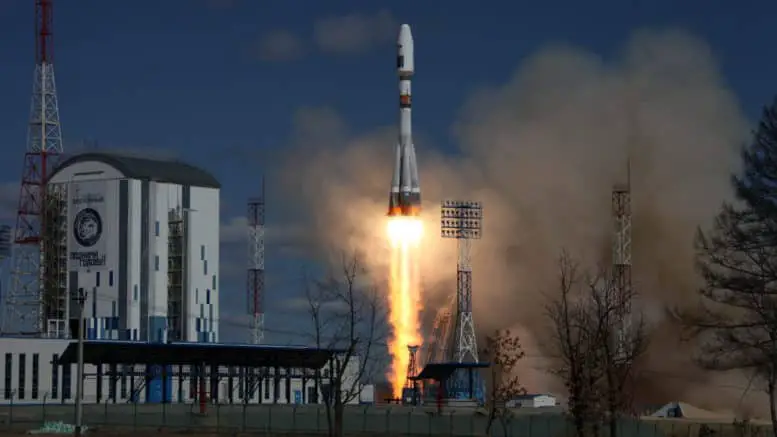Is Russia’s new launch site a long term liability or a strategic asset?
April 28 marked the first successful rocket launch from Russia’s new cosmodrome located in the Russian Far East at Vostochny. President Putin personally flew out to watch the liftoff. Despite a one-day delay due to a technical glitch, the launch occurred without any issues. The rocket itself was unmanned and carried three new satellites into orbit, which is not a particularly special achievement. According to TASS, Putin said, “But this is obviously a very serious, significant step in the development of Russian space science.” So we must examine why this moment is so significant, and perhaps we can also draw conclusions as to the future development of Russian space science.

The relationship between Kazakhstan and Russia for now remains mostly positive, but China’s expanding influence in central Asia could begin to shift the balance of power in the region away from what has traditionally been strictly Russian. Thirty-four years is simply too long to expect to maintain the status quo and have the majority of the space program rely on the cosmodrome in Kazakh territory.
As mentioned, Russia has another cosmodrome located within its own borders. Plesetsk Cosmodrome is located in Arkangelsk. Plesetsk remains very active for satellite launches, but the base’s primary purpose since construction in the 1950s has been the testing of Intercontinental Ballistic Missiles (ICBMs) and a training center for the Strategic Missile Troops. Its location is not ideal for the more extensive needs of the space program as it is too far from the equator, making launches more costly.
Back again to the Russian Far East, the Vostochny Cosmodrome has drawn considerable criticism for its own budget woes, which have in part stemmed from alleged corruption. Igor Nesterenko, who managed the construction company contracted to build the cosmodrome, has been charged with embezzlement to the tune of $1.6 million. At least two others have also been detained, also associated with the construction projects.

Roscosmos is the governing agency for all Russian space projects. It has recently gone through restructuring with the intent of increasing efficiency. During the 2000s, twenty-three standard satellite launches failed or were not fully successful in that decade. Many of these launches carried foreign satellites, damaging the international reputation of the reliability of Russian rockets. In 2013, President Putin called for the restructuring of Roscosmos. The primary reforms were made to the organizational and budget structures.
The Russian Federation is setting high hopes on the future of its space program with its heavy investment into the new facility in the Russian Far East. At least for the near future, there does not appear to be any plan to phase out use of the cosmodrome in Kazakhstan, meaning that Russia will be paying costs for both. The strategic necessity of a launch site within the borders of the Russian Federation is logical, but the expenses are also great, especially given the commonality of corruption and budget overruns for Russia. The restructuring of Roscosmos may lay the groundwork for renewed focus on the space program, but developing and utilizing space technology is a massive undertaking. Russia must find the financial resources for its programs and, particularly given the current global economic crisis and low oil prices, which still make up a majority of Russia’s budget income, Russia must make sure that the programs are efficiently administered. Only then will the nation have hope of competing in the long term with US and Chinese space programs and particularly with the growing number of private space companies offering similar services and projects.


